TESTOSTERONE - INTRAMUSCULAR
PHONETIC PRONUNCIATION: (tess-TOSS-ter-own)
COMMON BRAND NAME(S): Delatestryl, Tesamone
GENERIC NAME(S): testosterone cypionate
Uses
USES: This medication is used in men who do not make enough of a natural substance called testosterone. In males, testosterone is responsible for many normal functions, including growth and development of the genitals, muscles, and bones. It also helps cause normal sexual development (puberty) in boys. Testosterone belongs to a class of drugs known as androgens. It works by affecting many body systems so that the body can develop and function normally. Testosterone may also be used in certain adolescent boys to cause puberty in those with delayed puberty. It may also be used to treat certain types of breast cancer in women.
How to use TESTOSTERONE - INTRAMUSCULAR
HOW TO USE: This medication is given by injection into the buttock muscle as directed by your doctor, usually every 1 to 4 weeks. Do not inject this medication into a vein. Dosage is based on your medical condition, testosterone blood levels, and response to treatment. If you are giving this medication to yourself at home, learn all preparation and usage instructions from your health care professional. Before using, check this product visually for particles or discoloration. If either is present, do not use the liquid. Learn how to store and discard medical supplies safely. Use this medication regularly in order to get the most benefit from it. To help you remember, use a calendar to mark the days you will receive an injection. Misuse or abuse of testosterone can cause serious side effects such as heart disease (including heart attack), stroke, liver disease, mental/mood problems, abnormal drug-seeking behavior, or improper bone growth (in adolescents). Do not increase your dose or use this drug more often or for longer than prescribed. When testosterone is misused or abused, you may have withdrawal symptoms (such as depression, irritability, tiredness) when you suddenly stop using the drug. These symptoms may last from weeks to months. Tell your doctor if your condition does not improve or if it worsens.
Side Effects
Precautions
Interactions
Overdose
Images
Reviews
Faq for TESTOSTERONE - INTRAMUSCULAR
- Testosterone intramuscular injection is used to treat conditions caused by low levels of testosterone in the body, such as hypogonadism and certain types of breast cancer.
- Testosterone intramuscular injection is typically administered by a healthcare professional. It is injected into the muscle, usually the gluteal muscles in the buttocks.
- The frequency of testosterone intramuscular injections varies depending on the individual and the specific medical condition being treated. It may be given every 1-4 weeks, as determined by a healthcare provider.
- Some common side effects include acne, oily skin, increased facial or body hair growth, mood changes, breast swelling or tenderness, and fluid retention. There are also potential risks associated with long-term use, such as cardiovascular problems and liver complications.
- Testosterone intramuscular injections can increase muscle mass and strength in individuals with low testosterone levels. However, it is important to note that using testosterone for enhancing athletic performance or muscle growth without a medical condition is considered illegal and potentially dangerous.
- Testosterone intramuscular injections are generally not recommended for women, except in certain medical conditions under the supervision of a healthcare provider. Excessive testosterone can lead to masculinizing effects, such as deepening of the voice and loss of feminine characteristics.
- The effects of testosterone intramuscular injections can vary depending on the individual and the dosage. Some individuals may start noticing changes within a few days, while for others, it may take several weeks.
- If you miss a scheduled dose, it is important to contact your healthcare provider for guidance. They may recommend rescheduling the injection or adjusting the dosing schedule accordingly.
- Testosterone intramuscular injections may interact with certain medications, including blood thinners, insulin, and corticosteroids. It is vital to inform your healthcare provider about all the medications you are taking to avoid potential drug interactions.
Disclaimer
IMPORTANT: HOW TO USE THIS INFORMATION: This is a summary and does NOT have all possible information about this product. This information does not assure that this product is safe, effective, or appropriate for you. This information is not individual medical advice and does not substitute for the advice of your health care professional. Always ask your health care professional for complete information about this product and your specific health needs.
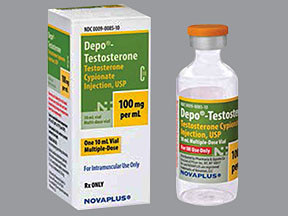
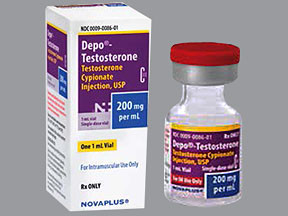
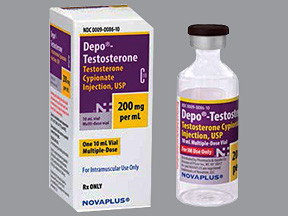
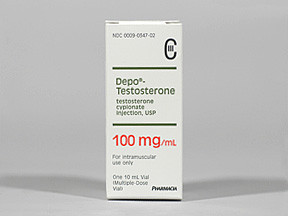
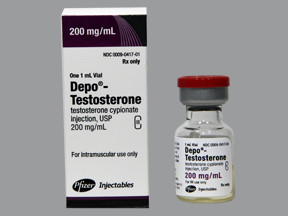
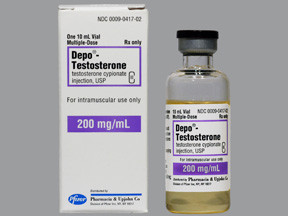
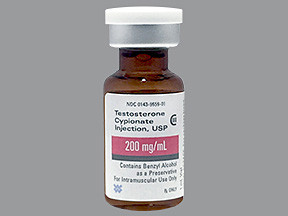
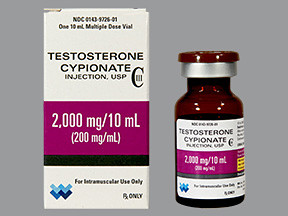
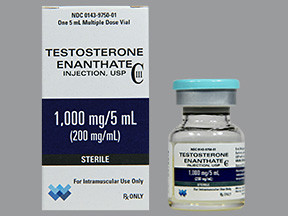
No Reviews Yet